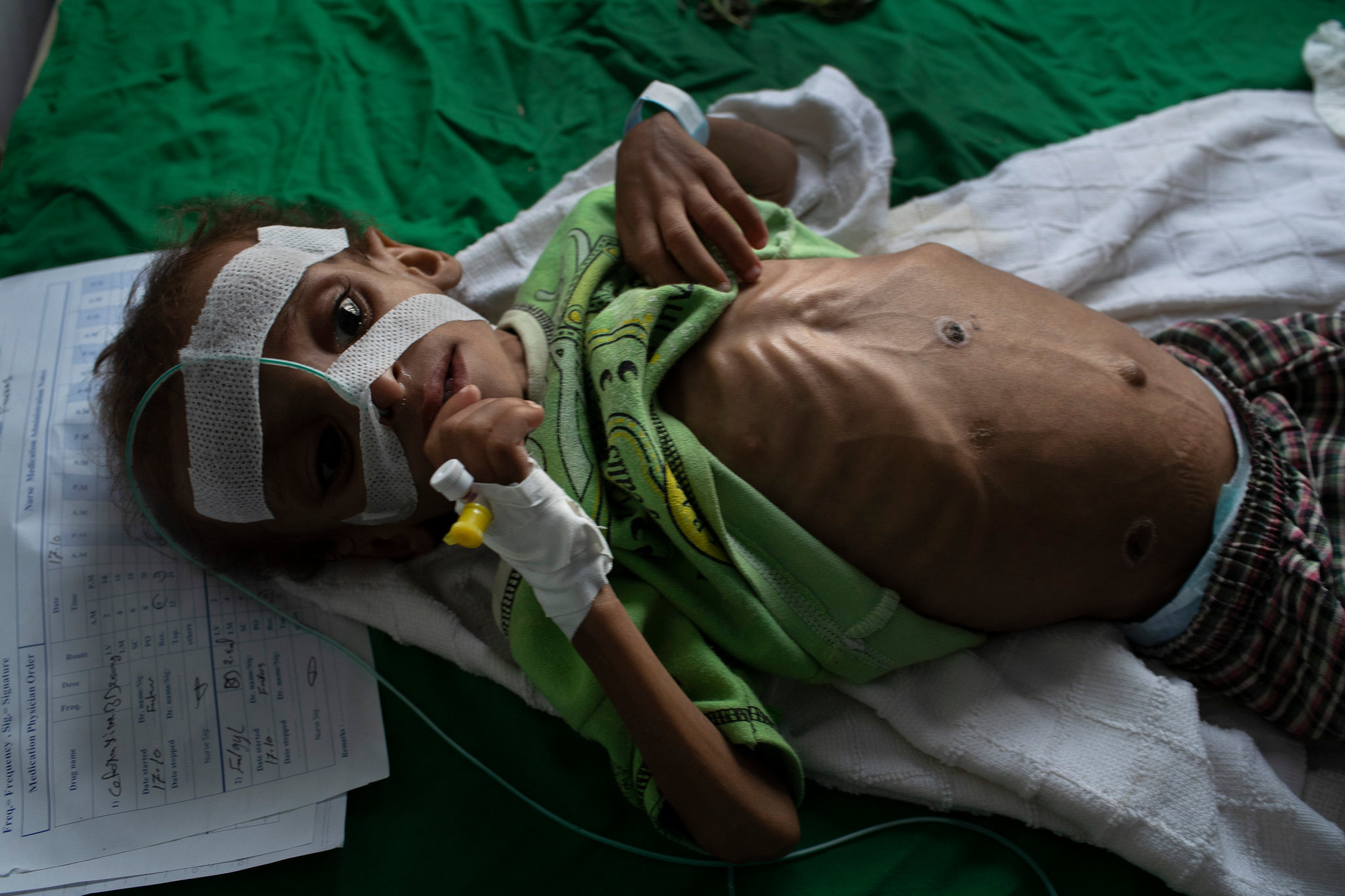The Tragedy of Saudi Arabia’s War
Yamanyoon
Written by Declan Walsh
Photographs by Tyler Hicks
CHEST HEAVING AND EYES FLUTTERING, the 3-year-old boy lay silently on a hospital bed in the highland town of Hajjah, a bag of bones fighting for breath.
His father, Ali al-Hajaji, stood anxiously over him. Mr. Hajaji had already lost one son three weeks earlier to the epidemic of hunger sweeping across Yemen. Now he feared that a second was slipping away.
It wasn’t for a lack of food in the area: The stores outside the hospital gate were filled with goods and the markets were bustling. But Mr. Hajaji couldn’t afford any of it because prices were rising too fast.
“I can barely buy a piece of stale bread,” he said. “That’s why my children are dying before my eyes.”
The devastating war in Yemen has gotten more attention recently as outrage over the killing of a Saudi dissident in Istanbul has turned a spotlight on Saudi actions elsewhere. The harshest criticism of the Saudi-led war has focused on the airstrikes that have killed thousandsof civilians at weddings, funerals and on school buses, aided by American-supplied bombs and intelligence.
But aid experts and United Nations officials say a more insidious form of warfare is also being waged in Yemen, an economic war that is exacting a far greater toll on civilians and now risks tipping the country into a famine of catastrophic proportions.
Under the leadership of Crown Prince Mohammed bin Salman, the Saudi-led coalition and its Yemeni allies have imposed a raft of punitive economic measures aimed at undercutting the Houthi rebels who control northern Yemen. But these actions — including periodic blockades, stringent import restrictions and withholding the salaries of about a million civil servants — have landed on the backs of civilians, laying the economy to waste and driving millions deeper into poverty.
Those measures have inflicted a slow-burn toll: infrastructure destroyed, jobs lost, a weakening currency and soaring prices. But in recent weeks the economic collapse has gathered pace at alarming speed, causing top United Nations officials to revise their predictions of famine.
“There is now a clear and present danger of an imminent and great, big famine engulfing Yemen,” Mark Lowcock, the under secretary for humanitarian affairs, told the Security Council on Tuesday. Eight million Yemenis already depend on emergency food aid to survive, he said, a figure that could soon rise to 14 million, or half Yemen’s population.
“People think famine is just a lack of food,” said Alex de Waal, author of “Mass Starvation” which analyzes recent man-made famines. “But in Yemen it’s about a war on the economy.”





